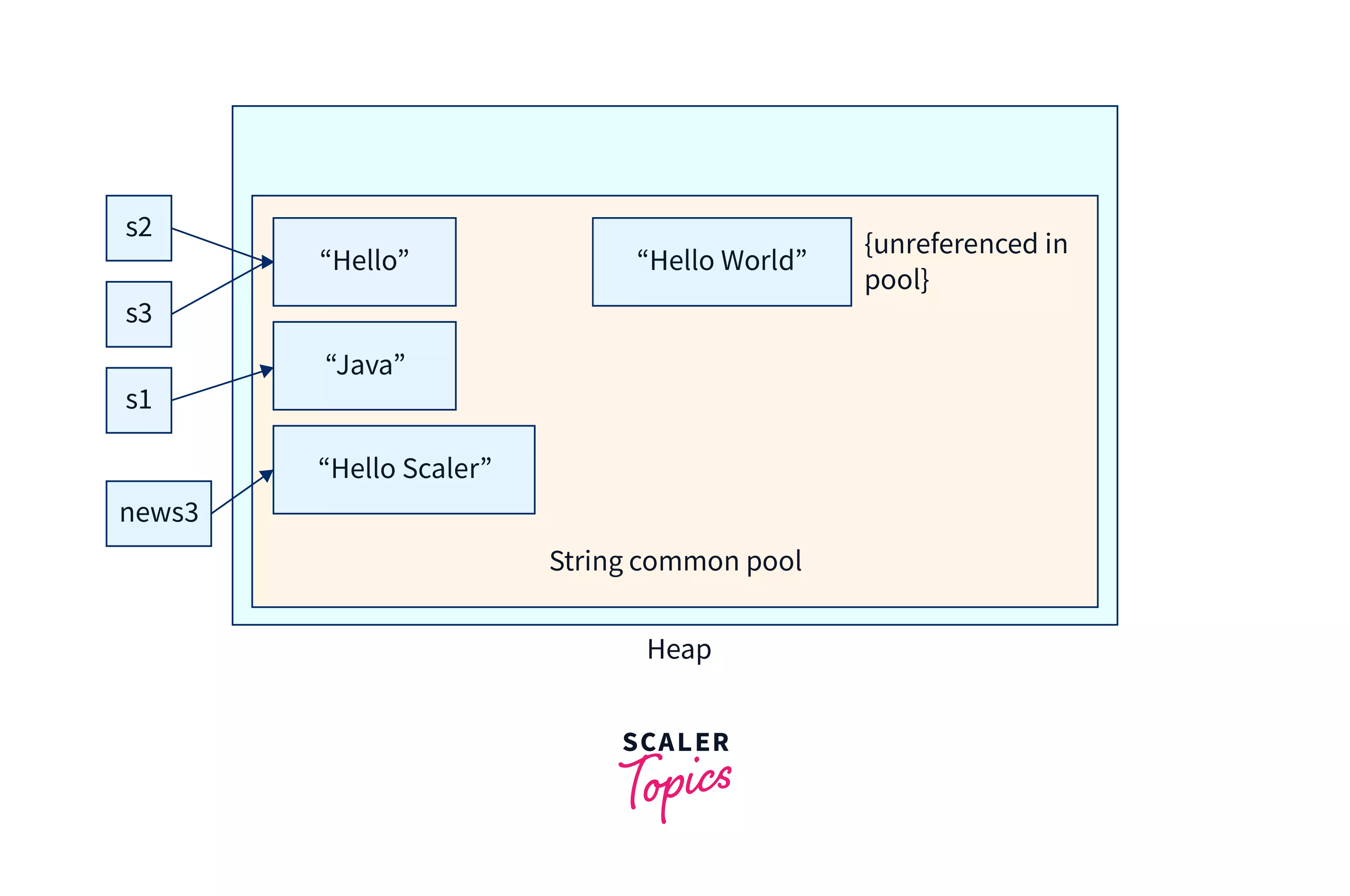Why Are Strings Immutable in Java? Essential Knowledge for Designers
Why Are Strings Immutable in Java? Essential Knowledge for Designers
Blog Article
What Is Immutable Strings and Exactly How It Works
In the world of programming, understanding the idea of unalterable strings is critical for developing durable and safe applications. Immutable strings refer to strings that can not be modified after they are developed, ensuring information honesty and predictability within the code. This basic concept plays an important role in numerous shows languages and uses a special method to taking care of information. By discovering the details of how immutable strings operate, one can uncover a globe of advantages and opportunities that can boost the quality and performance of software application development.
The Basics of Immutable Strings
Unalterable strings, as a basic concept in shows, are character series that can not be changed as soon as they are developed. This indicates that when a string is designated a worth, that worth can not be changed. In languages like Python and Java, strings are immutable items, causing various effects in terms of memory monitoring and data stability.
Among the key advantages of unalterable strings is that they supply a sense of safety in data manipulation. Given that the material of an unalterable string can not be changed, it makes certain that the original information stays undamaged, reducing the threat of unintentional changes during program implementation (Why are strings immutable in Java?). This property likewise simplifies debugging processes, as developers can rely on that once a string is defined, its value will certainly not be inadvertently altered
When a new string is created based on an existing one, rather than changing the initial string, the brand-new worth is stored independently. On the whole, comprehending the essentials of unalterable strings is vital for understanding shows principles and maximizing code efficiency.
Advantages of Unalterable Strings
Structure upon the safety and security and efficiency advantages of immutable strings, their advantages encompass boosting code integrity and streamlining concurrent programming tasks. By being immutable, strings can not be customized after creation, which gets rid of the risk of unintentional changes in the data they store. This inherent immutability makes certain that once a string is developed, its worth stays constant throughout the program's implementation, decreasing the chances of insects brought on by unforeseen alterations.
Additionally, immutable strings add to code integrity by making it much easier to reason regarding the state of a program. Considering that strings can not be changed, programmers can trust that a string will certainly constantly hold the same worth, simplifying debugging and maintenance efforts. This predictability leads to a lot more secure and reliable codebases.

Application in Shows Languages
Within different programs languages, the unification of unalterable strings is a basic aspect that affects just how data is taken care of and controlled within code frameworks. The implementation of unalterable strings varies throughout different shows languages, with each language offering its own systems to support this concept.

In comparison, languages like C and C++ do not have integrated assistance for immutable strings. Programmers in these languages need to manually apply immutability by implementing guidelines within their code to prevent direct alterations to string items.
Finest Practices for Dealing With Immutable Strings
When taking care of unalterable strings in programming languages like Java and Python, adhering to ideal practices ensures safe and efficient data adjustment. One of the vital best techniques is to make use of StringBuilder or StringBuffer rather than straight manipulating strings, especially when taking care of substantial concatenation procedures. These courses supply mutable choices for string manipulation, aiding to prevent unneeded memory appropriations and enhancing performance.
Furthermore, when working with sensitive information such as passwords or API tricks, it is important to avoid saving them as ordinary message in unalterable strings. Using safe storage systems like char ranges or specialized libraries for managing sensitive information assists alleviate protection threats connected with unalterable strings.
Real-world Applications and Examples
Discovering functional executions of immutable strings in numerous markets discloses their considerable effect on information stability and system reliability. In the health care industry, unalterable strings play an essential function in ensuring the safety and privacy of patient data. By protecting against unauthorized alterations to delicate info such as medical records and prescriptions, unalterable strings help keep compliance with rigorous privacy guidelines like HIPAA.
Banks likewise take advantage of the immutable nature of strings to improve the safety of consumer data and purchase records. Immutable strings aid avoid fraud and unauthorized alterations to monetary information, offering a durable defense against cyber dangers and making sure the trust fund and self-confidence of clients.

Final Thought
Best methods for working with immutable strings include staying clear of straight adjustments and making use of techniques that return new string items. Real-world applications of unalterable strings include data security, caching, and string manipulation jobs.
Immutable strings refer to strings that can not be changed after they are produced, guaranteeing data stability and predictability within the code. When a new string is created based look what i found on an existing one, rather than customizing the original string, the brand-new value is stored individually.In languages like Java and Python, strings are immutable by default, suggesting that as soon as a string things is produced, its value can not be altered - Why are strings immutable in Java?. Best practices for working with unalterable strings include staying clear of straight alterations and making use of approaches that return brand-new string items. Real-world applications of unalterable strings include information security, caching, and string control tasks
Report this page